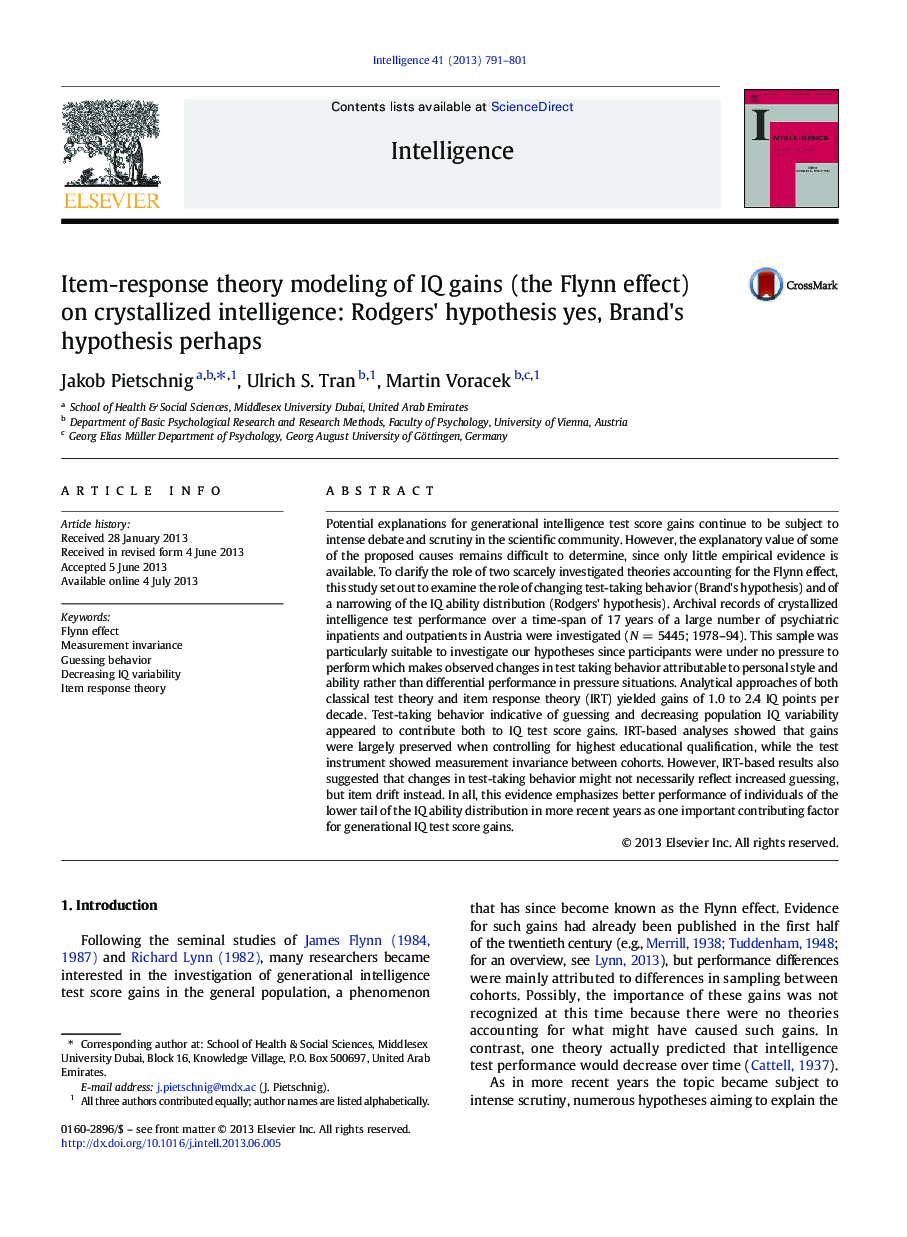| کد مقاله | کد نشریه | سال انتشار | مقاله انگلیسی | نسخه تمام متن |
|---|---|---|---|---|
| 929159 | 922543 | 2013 | 11 صفحه PDF | دانلود رایگان |

• Both methods of classical test theory and IRT-based methods indicate a Flynn effect.
• There is a robust Flynn effect for crystallized IQ in German-speaking countries.
• The Flynn effect is due to decreasing IQ variability in the present data.
• Increased guessing behavior may conceivably play an additional role for IQ gains.
Potential explanations for generational intelligence test score gains continue to be subject to intense debate and scrutiny in the scientific community. However, the explanatory value of some of the proposed causes remains difficult to determine, since only little empirical evidence is available. To clarify the role of two scarcely investigated theories accounting for the Flynn effect, this study set out to examine the role of changing test-taking behavior (Brand's hypothesis) and of a narrowing of the IQ ability distribution (Rodgers' hypothesis). Archival records of crystallized intelligence test performance over a time-span of 17 years of a large number of psychiatric inpatients and outpatients in Austria were investigated (N = 5445; 1978–94). This sample was particularly suitable to investigate our hypotheses since participants were under no pressure to perform which makes observed changes in test taking behavior attributable to personal style and ability rather than differential performance in pressure situations. Analytical approaches of both classical test theory and item response theory (IRT) yielded gains of 1.0 to 2.4 IQ points per decade. Test-taking behavior indicative of guessing and decreasing population IQ variability appeared to contribute both to IQ test score gains. IRT-based analyses showed that gains were largely preserved when controlling for highest educational qualification, while the test instrument showed measurement invariance between cohorts. However, IRT-based results also suggested that changes in test-taking behavior might not necessarily reflect increased guessing, but item drift instead. In all, this evidence emphasizes better performance of individuals of the lower tail of the IQ ability distribution in more recent years as one important contributing factor for generational IQ test score gains.
Journal: Intelligence - Volume 41, Issue 6, November–December 2013, Pages 791–801